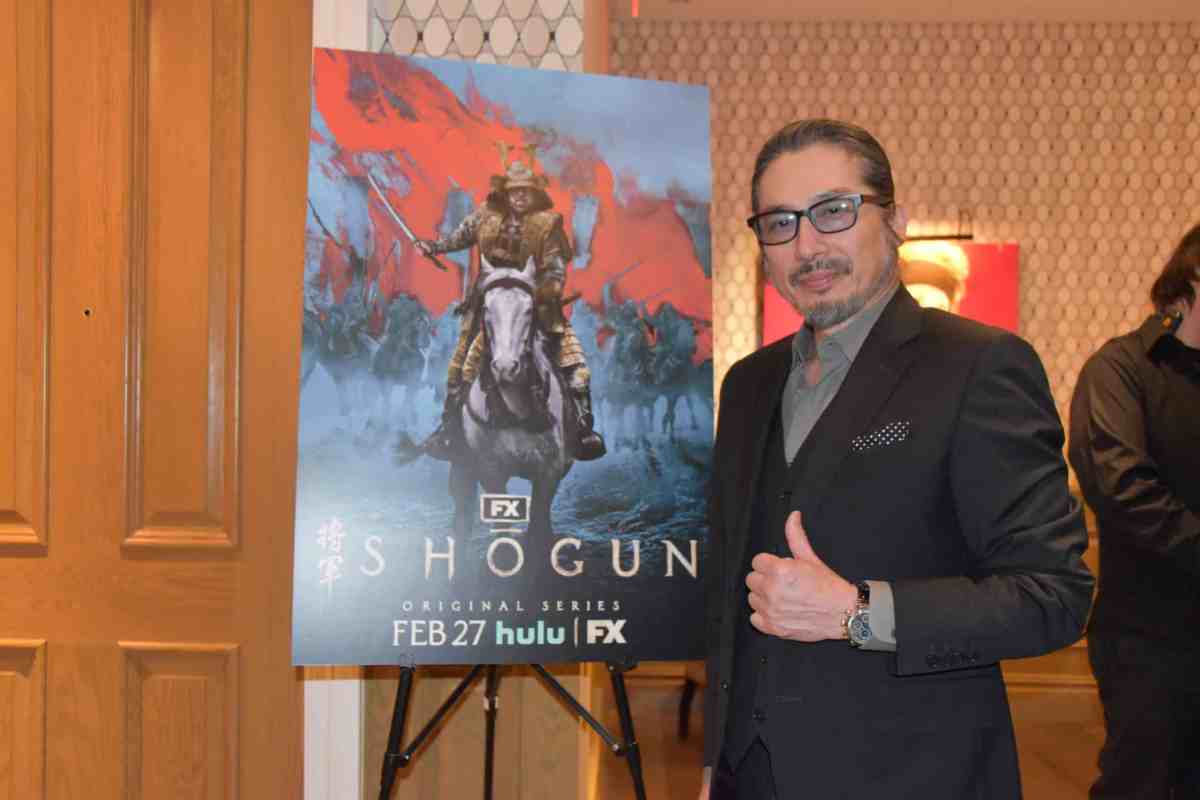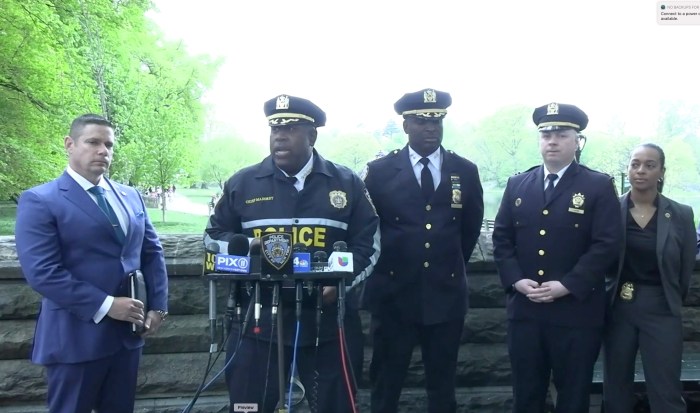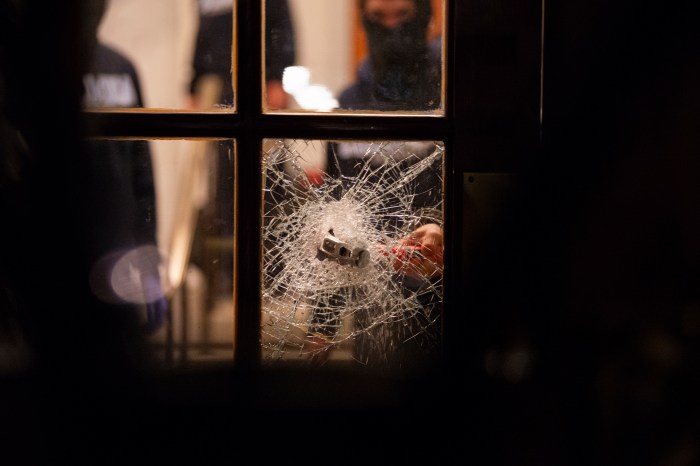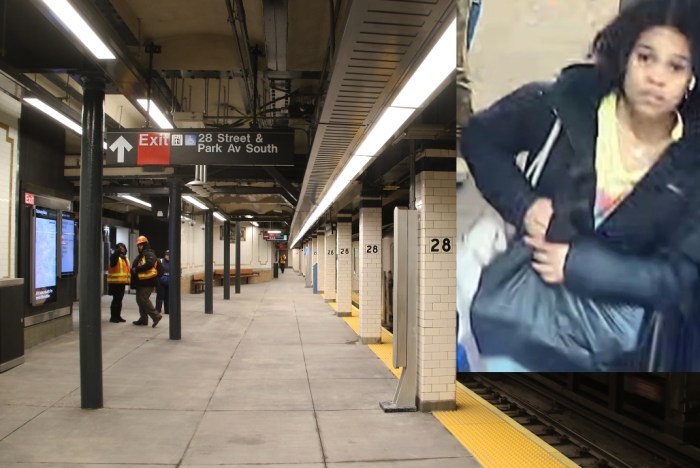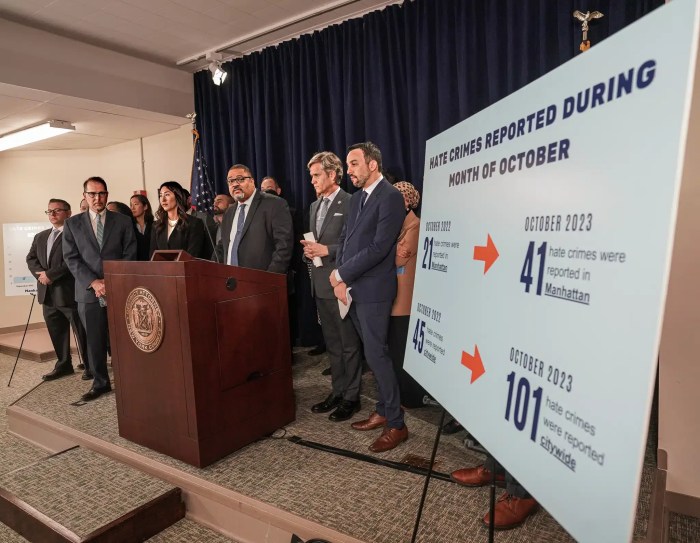Japanese mega star Hiroyuki Sanada recently joined FX’s showrunners in SoHo to discuss his upcoming period drama Shōgun and the importance of Asian representation on television.
At a private screening in the Crosby Hotel, which was kept under wraps by FX since the show is set to premier on Feb. 27, 2024, New Yorkers were treated to a sneak peek at the first two episodes of the limited series based on James Clavell’s novel.
Sanada, both the star and executive producer of the FX series Shōgun, is known for his roles in Hollywood blockbusters like Last Samurai, John Wick 4, Mortal Kombat, and Bullet Train to name a few.
While the 63-year-old actor and martial artist has been working in Australia to film the second iteration of Mortal Kombat, he proudly showcased his latest work on the new limited series that explores the cultural and religious history of Japan, its relationship with Portuguese and Spanish missionaries, and the power struggle between a Council of Regents.
After the private screening, Sanada along with the showrunners Justin Marks and Rachel Kondo (co-creators/executive producers), Eriko Miyagawa (producer), and Michaela Clavell (executive producer) participated in a Q&A moderated by ABC Good Morning America’s anchor Juju Chang.
Sanada says he believes it is important to speak up regarding his culture and utilize Japanese specialists and craftsmen in regard to costume design – how samurai moved and performed gestures in battle, and more.
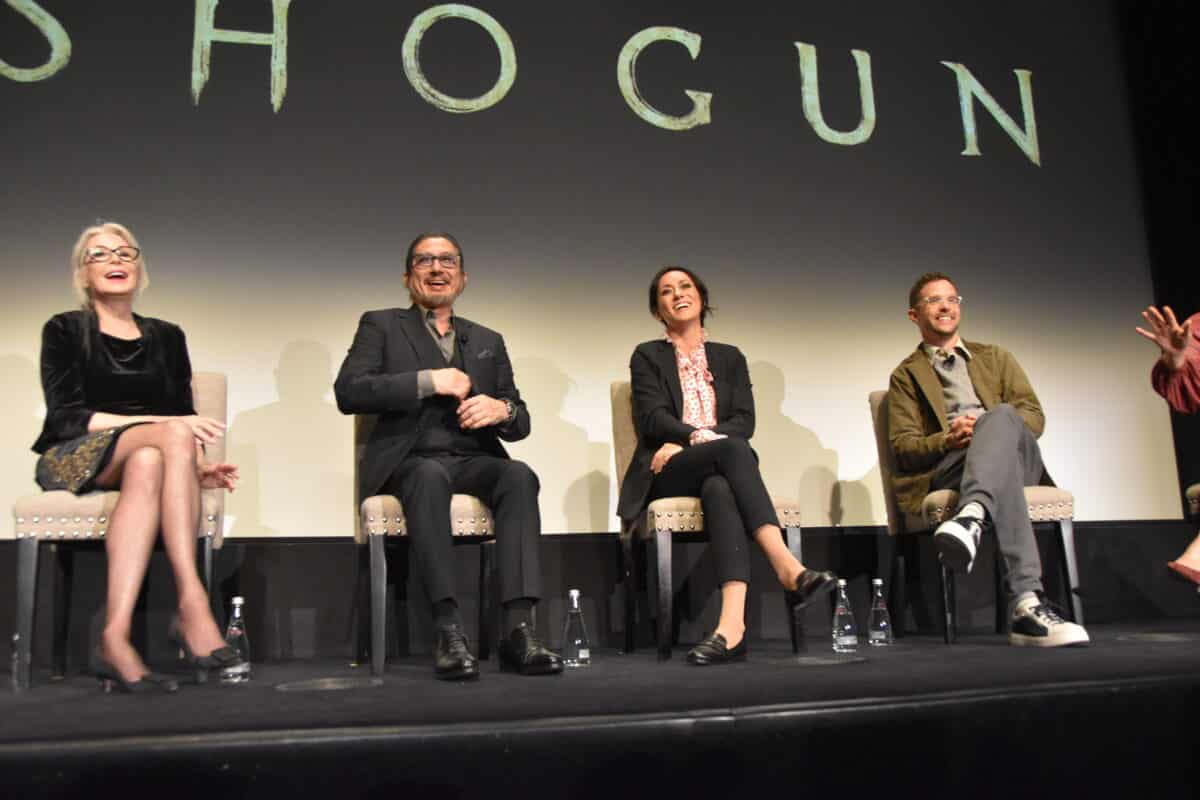
“The Last Samurai was my first Hollywood movie. It was 20 years ago, so after that I continued shooting and sometimes consulting on things for Japanese culture. As an actor I felt the limit to say something. This time, the first time, I was involved as a producer so I can say anything about our culture without hesitation,” Sanada said.
“So, what I thought was so important to the concentrate on the story. All other things, cultural things must be authentic. So, we try to make it authentic as much as possible to believe this story, to believe the character, to believe this show so that was my [part,]” Sanada added.
Film producer Miyagawa, credited for her work on Kill Bill, Lost in Translation, Mortal Kombat and Kite Runner, stressed that authenticity was crucial in the creation in Shōgun. She shared that she worked on a number of American shows with Japanese elements; however, many of these sets did not have Japanese producers.
“I think a lot of things can go amiss, like a slip between the fingers but it’s very important to follow through and make sure there’s consistency. So, the fact that we were able to do it with [Sanada] so closely throughout the process was extremely meaningful and we can all really see it [on the screen,]” Miyagawa said.
Chang underscored this element, adding that the film, which is focused on discovery, has an epic, Shakespearean scope that is centered on the Japanese perspective rather than a Western Character. In fact, much of the television show is told in Japanese with English subtitles.
Kondo also made sure to represent female characters as women of agency and women of strength.
“What was brilliant about the book was that the female characters took what agency they didn’t have, and they turn that into a sort of agency. And it helped tell their story to not have the ability to say certain things gave them constructions that actually made them more creative and more interesting,” Kondo said.
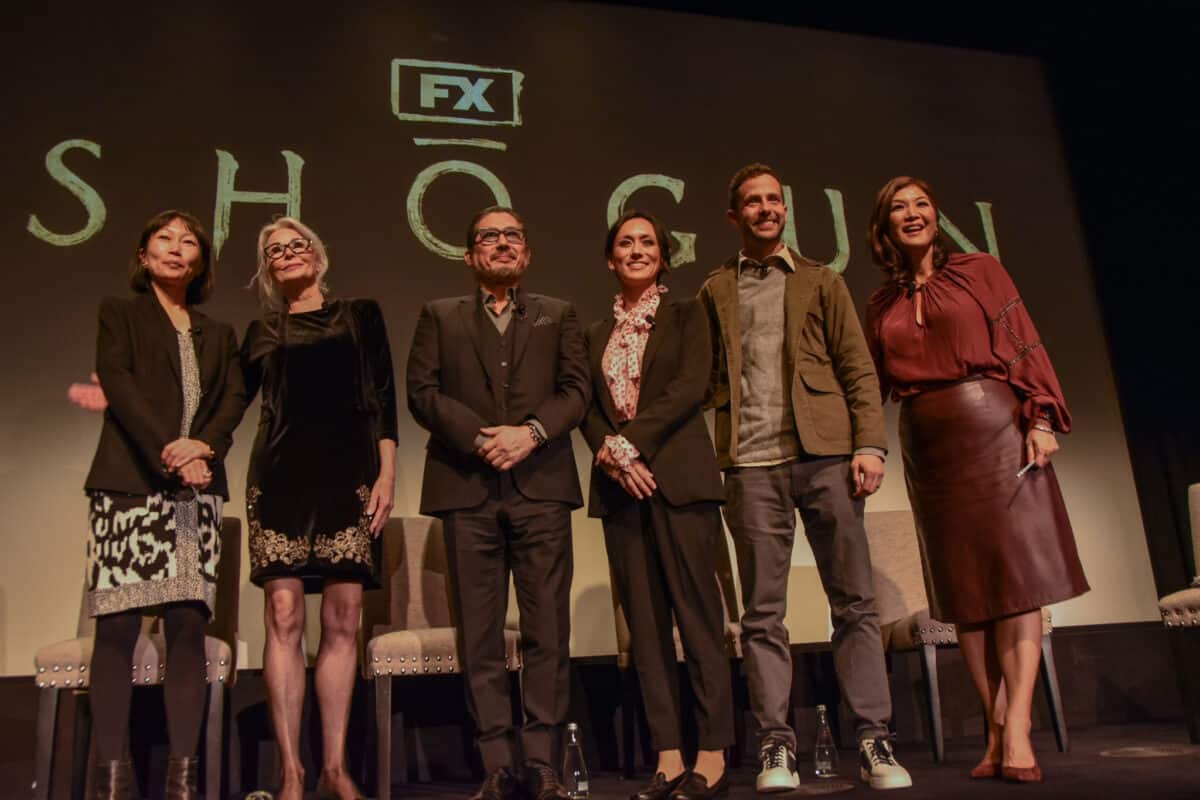
Even the language in the show was translated with linguistics who specialized in 16th century Japan to emphasize a level of authenticity and respect for the culture.
While it was a stressful process for Kondo to continuously edit the script, it added another level of depth to the show. There was one scene where a character is conflicted between her fealty to Japan and her religion, which she was asked which she would choose.
Kondo reiterated the line describing it as lyrical and profound: “If I was just Christian, I have more than one heart.” Originally it was written as “I am more than one thing.”
Sanada ended the discussion adding that he was proud helping create Shōgun, and he hopes that viewers will enjoy it.



